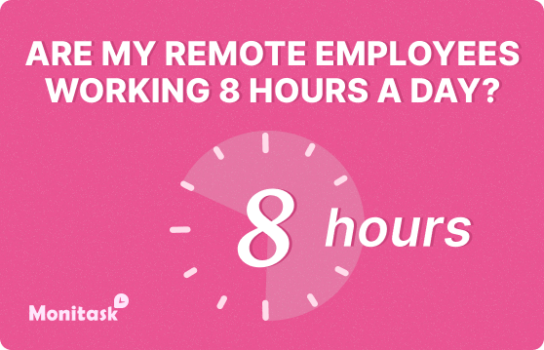FLSA Exempt
Understanding FLSA Exempt Status: A Comprehensive Guide
In the realm of employment law and human resources, few topics are as crucial and complex as the Fair Labor Standards Act (FLSA) and its provisions for exempt employees. This comprehensive guide aims to demystify the concept of FLSA exempt status, providing HR professionals, employers, and employees with a thorough understanding of its implications, requirements, and nuances.
What is FLSA Exempt Status?
FLSA exempt status refers to a classification of employees who are exempt from certain provisions of the Fair Labor Standards Act, particularly those related to minimum wage and overtime pay. These employees are typically salaried and perform executive, administrative, or professional duties that meet specific criteria outlined by the Department of Labor (DOL).
It's important to note that being "exempt" doesn't mean these employees are exempt from all labor laws. Rather, it means they are not entitled to overtime pay when they work more than 40 hours in a workweek, and their employers are not required to track their hours worked.
The History and Purpose of FLSA Exemptions
The Fair Labor Standards Act was enacted in 1938 as part of President Franklin D. Roosevelt's New Deal legislation. Its primary purpose was to establish minimum wage, overtime pay, recordkeeping, and youth employment standards affecting full-time and part-time workers in the private sector and in federal, state, and local governments.
The exemptions for certain types of employees were included to recognize that some jobs require a different approach to compensation and work hours due to their nature and responsibilities. The law has been amended several times since its inception to reflect changes in the workforce and economy.
Key Categories of FLSA Exempt Employees
While there are several categories of exempt employees, the three most common are:
1. Executive Exemption
To qualify for the executive exemption, an employee must:
- Be compensated on a salary basis at a rate of not less than $684 per week
- Have the primary duty of managing the enterprise or a department or subdivision of the enterprise
- Regularly direct the work of at least two other full-time employees or their equivalent
- Have the authority to hire or fire other employees, or their suggestions and recommendations as to hiring, firing, advancement, promotion, or any other change of status must be given particular weight
2. Administrative Exemption
For the administrative exemption, an employee must:
- Be compensated on a salary or fee basis at a rate of not less than $684 per week
- Have the primary duty of performing office or non-manual work directly related to the management or general business operations of the employer or the employer's customers
- Exercise discretion and independent judgment with respect to matters of significance
3. Professional Exemption
The professional exemption includes two sub-categories: learned professionals and creative professionals. Generally, to qualify for the professional exemption, an employee must:
- Be compensated on a salary or fee basis at a rate of not less than $684 per week
- Have the primary duty of performing work requiring advanced knowledge in a field of science or learning, typically acquired through prolonged specialized instruction (for learned professionals)
- Or, have the primary duty of performing work requiring invention, imagination, originality, or talent in a recognized field of artistic or creative endeavor (for creative professionals)
Salary Basis Test and Salary Level Test
Two critical components of determining FLSA exempt status are the salary basis test and the salary level test:
Salary Basis Test
To meet the salary basis test, an employee must receive a predetermined and fixed salary that is not subject to reduction because of variations in the quality or quantity of work performed. With few exceptions, an exempt employee must receive their full salary for any week in which they perform any work, regardless of the number of days or hours worked.
Salary Level Test
As of January 1, 2020, the standard salary level is $684 per week (equivalent to $35,568 per year for a full-year worker). This threshold is periodically reviewed and adjusted by the Department of Labor to account for changes in wage levels and economic conditions.
It's worth noting that some highly compensated employees (HCEs) may be exempt if they earn at least $107,432 per year and meet a minimal duties test.
Duties Tests: The Heart of FLSA Exemptions
While meeting the salary requirements is necessary, it's not sufficient for an employee to be classified as exempt. The employee's job duties must also meet specific criteria, known as the duties tests. These tests vary depending on the exemption category but generally focus on the employee's primary duty – the principal, main, major, or most important duty that the employee performs.
It's crucial to understand that job titles alone do not determine exempt status. The actual job duties and how they fit into the employer's overall operations are the determining factors.
Common Misconceptions about FLSA Exempt Status
Several misconceptions persist about FLSA exempt status:
- Myth: All salaried employees are exempt. Reality: Salary is just one component of exempt status; job duties are equally important.
- Myth: Managers are always exempt. Reality: The term "manager" in a job title doesn't automatically confer exempt status; the employee must meet specific criteria.
- Myth: Professionals with advanced degrees are always exempt. Reality: While many professionals may qualify for exemption, it's not guaranteed and depends on their specific job duties.
- Myth: Employers can dock an exempt employee's pay for partial-day absences. Reality: With few exceptions, doing so could jeopardize the employee's exempt status.
The Implications of Misclassification
Misclassifying employees as exempt when they don't meet the necessary criteria can have serious consequences for employers. These may include:
- Back pay for overtime hours worked
- Liquidated damages equal to the amount of back pay owed
- Civil penalties of up to $1,100 per violation
- Criminal prosecution and fines in cases of willful violations
Moreover, misclassification can lead to decreased employee morale, damage to the company's reputation, and potential class-action lawsuits.
Best Practices for Employers
To ensure compliance with FLSA regulations and avoid the pitfalls of misclassification, employers should consider the following best practices:
- Regularly review job descriptions and actual job duties to ensure they align with FLSA exemption criteria
- Conduct periodic audits of employee classifications
- Provide training to managers and HR personnel on FLSA requirements
- Maintain accurate records of employee hours, even for exempt employees
- Consult with legal counsel or HR experts when in doubt about an employee's classification
- Stay informed about changes in FLSA regulations and salary thresholds
The Future of FLSA Exemptions
As the nature of work continues to evolve, particularly in light of technological advancements and changing work arrangements (such as remote work and the gig economy), discussions about potential updates to FLSA regulations are ongoing. Some areas of focus include:
- Adjusting salary thresholds more frequently to keep pace with economic changes
- Refining exemption categories to better reflect modern job roles
- Addressing the classification of gig workers and independent contractors
HR professionals and employers should stay attuned to these potential changes and be prepared to adapt their practices accordingly.
Conclusion
Understanding FLSA exempt status is crucial for both employers and employees. It impacts compensation, work hours, and overall employment practices. While the regulations can be complex, a thorough understanding of the key principles – including salary requirements, duties tests, and common exemption categories – can help organizations navigate this important aspect of employment law.
As with many areas of HR and employment law, when it comes to FLSA exempt status, knowledge is power. By staying informed, conducting regular reviews, and seeking expert advice when needed, organizations can ensure compliance, avoid costly mistakes, and create a fair and legally sound work environment for all employees.
Remember, while this guide provides a comprehensive overview of FLSA exempt status, it's always advisable to consult with legal counsel or HR experts for specific situations or questions. The landscape of employment law is continually evolving, and staying up-to-date is key to effective HR management and organizational success.


